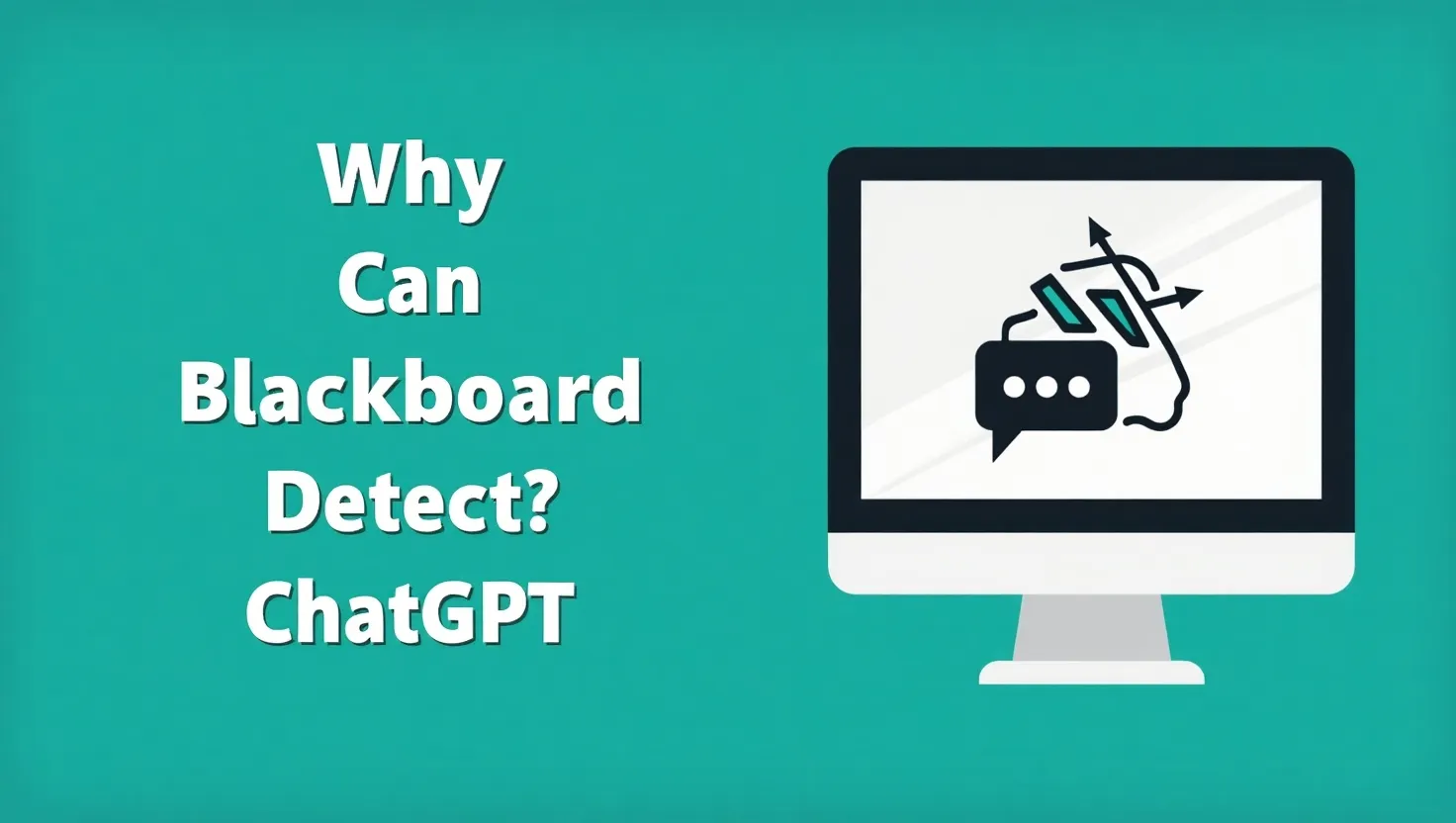As online learning grows, so do concerns about academic integrity, especially with the rise of artificial intelligence (AI) tools like ChatGPT. Many students and educators wonder if platforms like Blackboard, a widely used Learning Management System (LMS), can detect AI-generated work.
What is Blackboard?
Blackboard is a leading LMS used by schools and universities worldwide. It helps educators create and manage online courses, assignments, quizzes, and discussions. Students use it to submit work, check grades, and communicate with instructors. While Blackboard is a powerful tool for education, it relies on third-party integrations for plagiarism and AI detection rather than having its own built-in system. For more details, visit Anthology’s website.

What is ChatGPT?
ChatGPT, developed by OpenAI, is an AI language model that generates human-like text based on user prompts. Launched in November 2022, it can write essays, answer questions, and create content that mimics human writing. Its capabilities have sparked debates about its use in academic settings, as students might use it to complete assignments. Learn more about ChatGPT at OpenAI’s website.

Does Blackboard Have AI Detection?
Blackboard itself does not have built-in AI detection capabilities. According to Anthology, the company behind Blackboard, they have chosen not to implement native AI detection tools due to concerns about their reliability and potential bias Anthology’s Blog. Instead, Blackboard integrates with third-party tools like Turnitin and SafeAssign, which are primarily designed for plagiarism detection but also include features to identify AI-generated content.
Some institutions may also use other tools, such as Compilatio or GPTZero, which integrate with Blackboard to detect AI writing Compilatio Integration. However, these integrations are not universal and depend on the institution’s setup.
How Does Turnitin Detect AI Writing?
Turnitin, a popular plagiarism detection tool integrated with Blackboard, has developed AI detection features to identify text generated by tools like ChatGPT. It analyzes patterns such as unusual phrasing, repetitive structures, or lack of personal voice, which are common in AI-generated content. However, Turnitin’s AI detection is not foolproof. It can produce false positives, flagging human-written text as AI-generated, or false negatives, missing AI content entirely Originality.AI Blog.
| Tool | Purpose | AI Detection Capability | Limitations |
|---|---|---|---|
| Turnitin | Plagiarism and AI detection | Identifies AI patterns | Possible false positives/negatives |
| SafeAssign | Plagiarism detection | Limited AI detection | Focuses on text matching |
| GPTZero | AI detection | Specialized for AI content | Not universally integrated |
| Compilatio | Plagiarism and AI detection | Detects AI-generated text | Institution-dependent integration |
Can You Bypass AI Detection on Blackboard?
Some sources, like Twixify’s guide, suggest that altering AI-generated text can make it harder for detection tools to identify. For example, rephrasing or adding personal touches might reduce detection rates. However, attempting to bypass AI detection is unethical and violates most academic integrity policies. If caught, students could face penalties like failing grades or disciplinary action. Instead, focus on producing original work and using AI tools responsibly.
What Are Authentic Assessments?
To address AI plagiarism, many educators are adopting authentic assessments. These are assignments that require critical thinking, personal perspectives, or real-world applications, which AI struggles to replicate convincingly. Examples include:
- Oral exams or presentations
- Group projects with peer evaluations
- In-class writing assignments
- Tasks based on current events or personal experiences
Anthology promotes authentic assessments as a key strategy to maintain academic integrity, as outlined in their white paper on AI and assessment. These methods ensure students demonstrate their own understanding.
How Are Institutions Adapting to AI in Education?
Schools and universities are responding to AI’s impact on education in several ways:
- AI Literacy Programs: Teaching students how to use AI tools ethically, such as for brainstorming or research, rather than submitting AI-generated work.
- Revised Assessments: Using proctored exams, in-person assignments, or oral defenses to verify student knowledge.
- Cautious Use of Detection Tools: Some institutions use tools like GPTZero or Originality.AI, but with awareness of their limitations ZeroGPT Blog.
- Policy Updates: Clarifying rules about AI use in academic work to guide students and faculty.
Tools for AI Detection
Beyond Turnitin, other tools like GPTZero and Originality.AI are used to detect AI-generated content. GPTZero, for instance, was tested with Blackboard in 2023 but is not universally adopted GPTZero News. These tools analyze text for AI-specific patterns, but their accuracy varies, and they may not be integrated into every Blackboard system.
Ethical Use of AI in Education
AI tools like ChatGPT can be valuable for learning if used correctly. Students can use them to:
- Brainstorm ideas for essays or projects
- Simplify complex concepts for better understanding
- Practice writing by comparing their work to AI suggestions
However, submitting AI-generated work as your own is considered plagiarism. Always cite AI tools if allowed by your institution, and ensure your final submission reflects your own effort. For guidance, check resources like Forbes’ article on AI ethics.
Final Thoughts
As AI tools like ChatGPT become more common, maintaining academic integrity is a shared responsibility. Blackboard relies on tools like Turnitin to detect AI-generated content, but these are not perfect. Educators are shifting toward authentic assessments and teaching ethical AI use to ensure genuine learning. Students should focus on original work and use AI as a tool to support, not replace, their efforts. By understanding these systems, we can foster an educational environment that values creativity and integrity.
